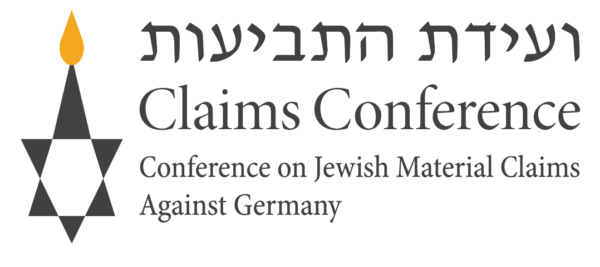Insurance Claims – ICHEIC
Please note: The claims and appeals process for ICHEIC has closed.
In 1998, together with U.S. insurance regulators, representatives of the State of Israel and the World Jewish Restitution Organization (WJRO), the Claims Conference was involved in the establishment of the International Commission on Holocaust Era Insurance Claims (ICHEIC) in order to resolve disputes over unpaid insurance policies issued by a number of major European insurance companies to Holocaust victims. ICHEIC was chaired by former U.S. Secretary of State Lawrence Eagleburger.
Negotiations led to settlements with Generali, Winterthur Life Insurance Company, Zurich Life Insurance Company, and AXA.
In 2002, ICHEIC reached an agreement with the German Foundation “Remembrance, Responsibility and the Future.” When the Foundation was established in 2000, it had set aside DM 550 million (approximately $252 million) for the payment of outstanding Holocaust era Jewish insurance policies sold in Germany or by German companies in the Nazi-occupied territories, and for humanitarian purposes.
These agreements were a major step forward for many survivors and their heirs who previously had no readily available means to pursue valid insurance claims.
As a result of extensive research conducted in a number of major archives throughout the world, ICHEIC identified a significant body of documents allowing many claimants to substantiate their claims.
The settlements incorporated recognition of heirless policies by designating funds for humanitarian purposes. As of the end of 2006, the Claims Conference had administered according to specific detailed guidelines established by ICHEIC, a total of $75 million in allocations from these funds to social service agencies assisting needy Jewish victims of Nazism, predominantly in providing in-home services.The Claims Conference also provided certain technical services for ICHEIC in its work.
ICHEIC held its final meeting on March 20, 2007. ICHEIC’s key achievements as outlined at the meeting were as follows:
- Over $300 million in awards were made to more than 48,000 Holocaust survivors and their heirs.
- ICHEIC conducted an extensive worldwide outreach campaign to encourage claimants to file, and more than 70 European insurance companies and partner entities participated in the process.
- ICHEIC’s archival research and matching processes resulted in member company offers to 8,000 claimants totaling nearly $100 million on claims that originally did not name an insurance company.
- ICHEIC also extended $30 million in awards through its Eastern European humanitarian claims process for claims on policies written by companies that were nationalized or liquidated after World War II and for which no present-day successor could be identified.
- ICHEIC extended an additional 31,000 humanitarian awards totaling $31 million on eligible undocumented claims that contained a high level of anecdotal information regarding insurance but could not be matched against company records. These awards were made in recognition of the fact that, due to the ravages of war and the passage of time, many claims cannot be substantiated today.
Detailed information on the work of ICHEIC can be found at https://icheic.ushmm.org/.
ICHEIC requested the Claims Conference to assume the following responsibilities as part of the wind-up of ICHEIC:
- The Claims Conference will pursue the reimbursement from relevant East European governments of the awards to policy holders made through the ICHEIC Eastern European Humanitarian claims process described above.
- The Claims Conference will implement the remaining distribution of ICHEIC humanitarian funds according to the specific detailed guidelines established by ICHEIC.
The Claims Conference does not have any authority or responsibility for handling or dealing with any claims that were submitted to ICHEIC related to Holocaust-era insurance.
Claims Conference Technical Assistance to ICHEIC
The Claims Conference provided technical assistance to the International Commission on Holocaust Era Insurance Claims (ICHEIC) for its humanitarian claims and payment processes. Under ICHEIC’s humanitarian claims process, claims for which no supporting documentation could be located in company archives or through ICHEIC research efforts were reviewed and eligible claims receive a $1,000 humanitarian award.
Samuel Berger, former National Security Advisor to President Clinton, oversaw the development of guidelines for evaluating these claims as Senior Counselor to the ICHEIC humanitarian claims process. In an initiative designed to save administrative costs, the Claims Conference used a night shift operation to review the claims, utilizing already existing space and infrastructure. The Claims Conference has evaluated for ICHEIC approximately 70,000 of these claims. As a result of this work, 30,687 ICHEIC claimants have received awards for a total of $30.7 million.
The Claims Conference also assisted ICHEIC in issuing payments to claimants who had received an award through the ICHEIC Eastern European humanitarian claims process. This process covered documented Holocaust era policies issued by companies in Eastern Europe that were nationalized or liquidated after World War II, or for which there is no found present-day successor company. The Claims Conference assisted ICHEIC in making payments to 3,880 recipients who have received a total of $29.6 million in awards.
In 2004 the Claims Conference also began operating the toll-free ICHEIC Call Center, which provided claimants with information regarding the status of their claims. It originally operated 16 hours a day with staff members proficient in 15 languages.
In early 2007, ICHEIC closed its operations. Offers and awards made as a result of the ICHEIC process totaled more than $306 million on more than 48,000 claims.
The information presented herein is intended for information purposes only and solely as a general guide.The information is not intended as legal advice. It is a summary of specific issues and does not represent a definitive or complete statement of the programs and policies of the agencies or governments mentioned. The information may not address the special needs, interests and circumstances of individual recipients. Individual situations differ and recipients are urged to seek individual advice.Individuals seeking specific information on a program are urged to contact the relevant program or to consult their social service agency or help center representative. To the best of our knowledge the information is correct as of the date of this document and this information may change subsequent to the said date.
Last updated November 2007

